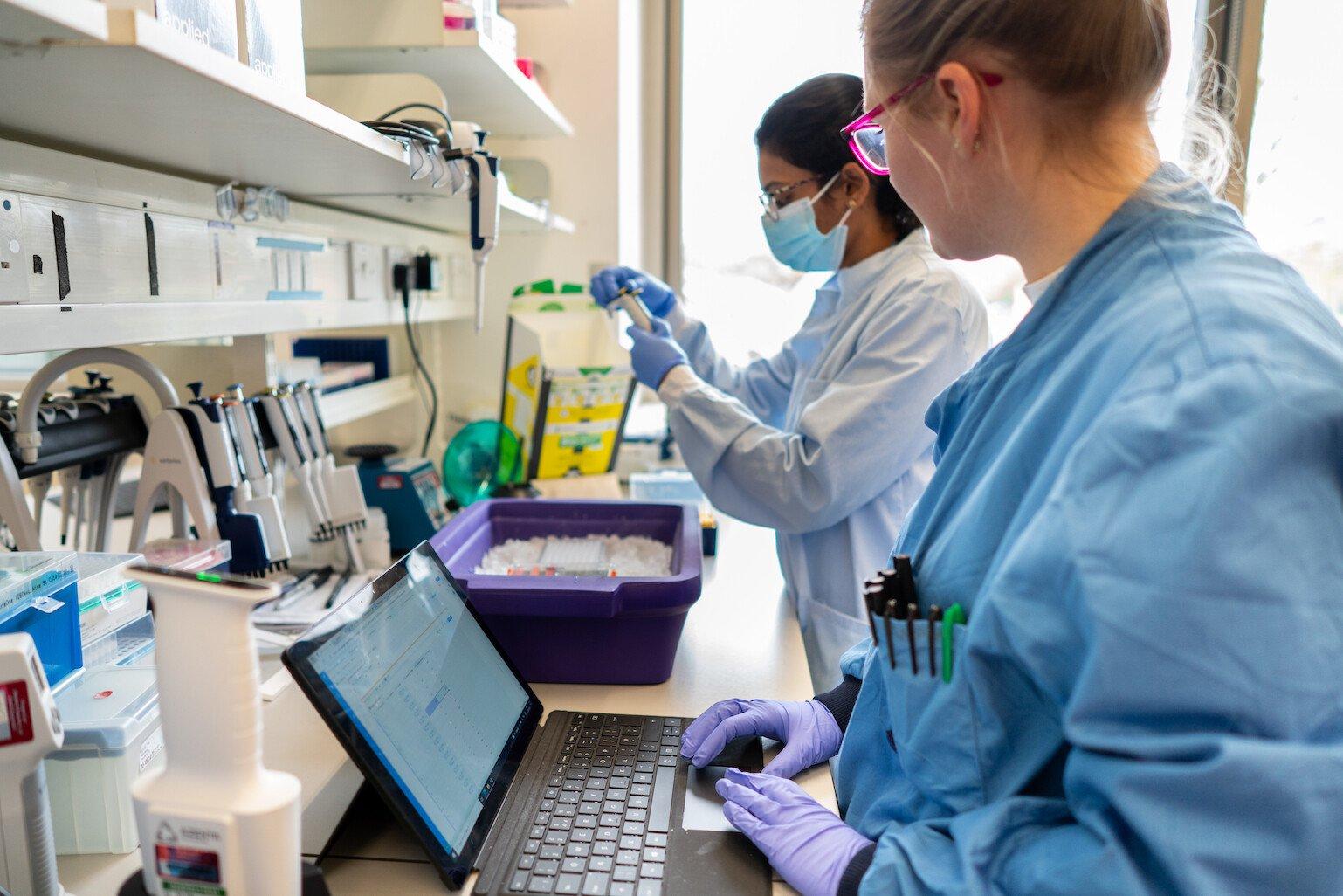
Horizon Europe: why the UK re-joining is great for science and health
With a new deal struck between the UK and EU on Horizon Europe, we look at why the scheme matters for health research and what needs to happen next.

Patrick Shepherd / Wellcome
This week the UK confirmed it will be re-joining Horizon Europe. I can’t tell you how delighted I am that this issue has finally been resolved. It’s a massive step forward for science and health, both in the UK and around the world.
Horizon Europe is the largest international research collaboration scheme in the world. And with the UK re-joining, critical research collaboration can now happen at a scale that would be unimaginable at country level.
It’s not just about Europe either: Norway, Israel and New Zealand are members, with South Korea, Japan and Canada also in talks to join. The joint budget runs to nearly €100bn.
UK researchers can now apply for Horizon Europe funding, and lead Horizon Europe schemes starting from January 2024.
How did we get here?
- The UK was part of Horizon Europe by virtue of its EU membership – until Brexit.
- As part of the Brexit deal, the UK was meant to carry on taking part in Horizon.
- But that got put on hold because of wider disputes between the UK and the EU over Brexit, largely to do with how trade works between Northern Ireland, the EU and the UK.
- Those issues were resolved earlier this year with the Windsor Framework, clearing the way for the UK to re-join Horizon Europe.
- But because of the delays and a need to come to an agreement on fair sharing of costs, it’s taken another six months to seal the deal on Horizon Europe.
Why is Horizon Europe so important for science?
Collaboration schemes make it a lot easier for scientists to work together across borders.
This means really big collaborations such as the Human Brain Project, involving 500 researchers in 19 countries to help us understand how the brain works and how to address neurological problems, can take place with ease.
It can also mean researchers can come together to investigate things like rare diseases, at a scale that wouldn’t be possible within one country.
Collaboration is great for the vitality of science in the UK and elsewhere, and it’s great for new discoveries and innovation and the economy. But it’s also great for health and helping to solve the urgent health challenges the world faces.
What role did Wellcome play?
Throughout 2016-17 we contributed to parliamentary inquiries into the implications of Brexit for research and along with others we spoke and wrote to political leaders.
We worked with the Royal Society in 2018 to convene European research leaders to explore the issues and propose a way forward. We published our Brexit and Beyond report, which drew on submissions from 200 organisations and individuals.
In 2019, we published a briefing on why the UK should associate to Horizon Europe [PDF 245KB].
In 2020, we worked with economic think-tank Bruegel to ‘simulate’ what a UK-EU deal for science could look like, with Horizon at its core – teaching us so much about the dynamics of the real negotiations to come.
Later that year, we assembled a coalition of more than 100 organisations and researchers across the UK and Europe to back a proposal on how progress could be made in the negotiations [PDF 107KB], which led to a deal as part of the Trade and Cooperation Agreement.
In 2021, we backed the Stick to Science campaign across the UK, Europe and Switzerland, making the case for UK and Swiss participation in Horizon Europe.
In 2022 and 2023, we’ve been continuing to push behind the scenes and using our influence to convince politicians and help officials through the process.
We’ll be looking ahead now to influencing the programme that will succeed Horizon Europe in 2027. This could become an even bigger way of solving the urgent health challenges facing everyone.
What researchers need to know
Brilliant as the news is, it’s important to also acknowledge it has been a difficult three years. The UK during its EU membership was a really important player in Horizon Europe programmes. The UK was remarkably successful in the grants researchers secured, leading lots of research collaboration as part of it.
In the last three years that hasn’t been possible in the same way and I know our European partners have missed their UK collaborators. While association was on hold, researchers in the UK could apply for this funding but were then not able to take it up. We also know that people have decided not to make their career in the UK and have chosen a different country in the EU so they could benefit.
The uncertainty finally over, it’s really important that researchers know that they can apply again. There is lost ground to make up, but there will be a lot of enthusiasm to get back to collaborating through Horizon Europe.
Recognising collaboration
I’d also like to say thank you to all those across the UK and Europe that have played a part in securing this deal. There has been a huge coalition of voices who have kept going even when things looked very tough.
Reaching this point has required the EU and the UK government to recognise the global benefits that scientific collaboration brings. It would have been politically tempting for both sides to try and show they could do without each other.
The leadership they have demonstrated here will create a lasting legacy for health, the economy, and the UK and the EU’s place in the world, and we are very grateful for it.
Keep up to date with news on Horizon Europe and all the latest for researchers with our newsletter.

